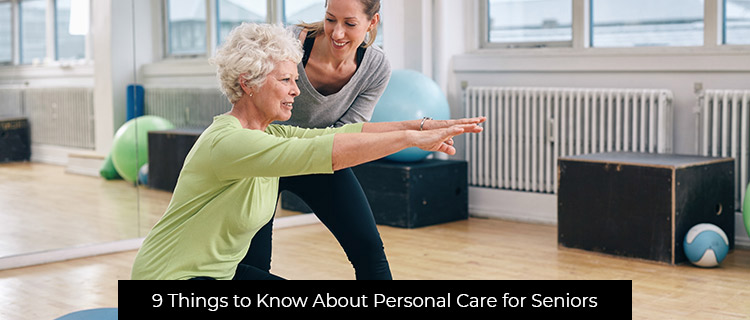Personal care is something that many seniors will require at some point during their retirement years. Personal care for seniors is not a new service but there have been many improvements and innovations made in this sector in the relatively recent past. This means there might be some important facets of personal care for seniors about which you do not know. If you are a senior contemplating personal care or if you’re the loved one of a senior who might benefit from personal care, it can be difficult to learn all the things you need to know about personal care. Here are nine things that you should know about personal care for seniors.
1. Where can personal care be provided?
Some people think that seniors can only receive personal care in a senior care facility, such as a nursing home or an assisted living community. But that’s not true. Seniors can also receive personal care in their own private homes.
2. Is personal care for seniors more expensive in-home?
We’re used to paying more for convenience, so you might think that having personal care provided in-home for a senior would be the more expensive option. But usually, it’s not. In-home personal care for seniors is generally less expensive because you don’t have to pay rent or fees to a senior care facility
3. Many seniors prefer in-home personal care
Everybody is different and everybody’s circumstances and concerns are different, but by and large, seniors prefer to receive personal care in their own homes. Some seniors even refuse to accept personal care if they think they’ll have to move out of their home and into a senior care facility in order to receive it.
4. Who provides personal care for seniors?
Whether it’s provided in-home or in a facility, personal care for seniors is administered by caregivers.
5. Is personal care for seniors ever administered by a registered nurse?
Typically, all personal care for seniors is provided by caregivers. However, sometimes registered nurses are needed to evaluate care or give advice. Registered nurses can even provide these services in-home when necessary. Other services registered nurses can provide include simple wound care, medication management, bladder catheterization, and Skilled Care
6. What services do personal caregivers provide?
Personal care for seniors can cover services such as help with eating, help with bathing, dental/denture care, basic skin care and nail maintenance, providing continence care, help with getting out of bed and in and out of wheelchairs, and Personal Care.
7. How much personal care can I get?
A personal caregiver can come by as little as once a week or even live in the home of a client who needs access to around-the-clock assistance.
8. My loved one has dementia. Can they receive personal care?
For seniors with specific conditions that might complicate care, there are personal caregivers who specialize in helping seniors with that condition. Such conditions might include, dementia/Alzheimer’s Disease, Multiple Sclerosis, Parkinson’s Disease, and Specialized Care.
9. Are there other types of senior care?
Personal care is dedicated to helping seniors perform activities of daily living but there are other types of senior care, too: companion care and homemaker services.
Contact us
If you would like to learn more about personal care for seniors, please contact Executive Home Care.
